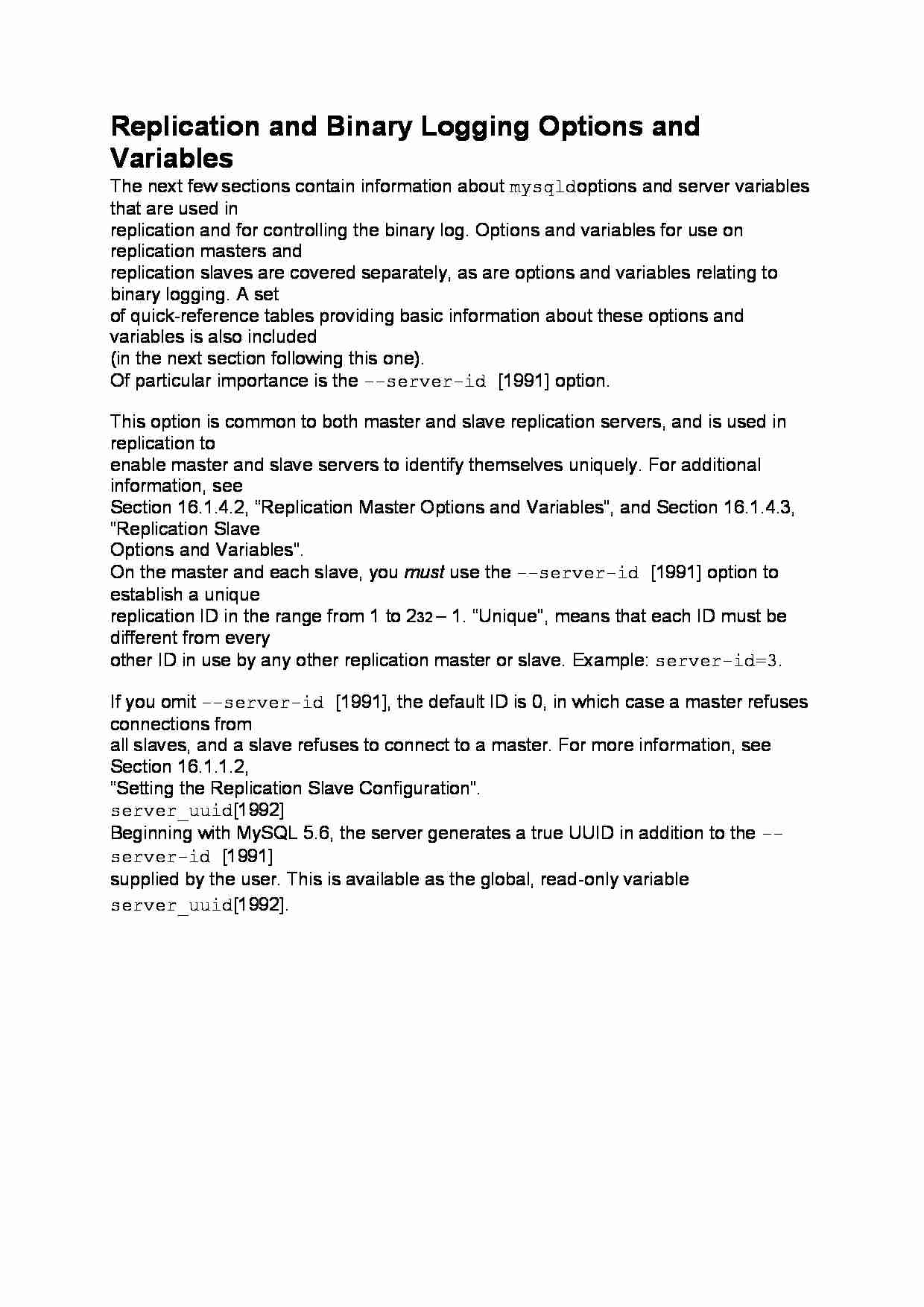
Replication and Binary Logging Options and Variables
The next few sections contain information about mysqld options and server variables that are used in
replication and for controlling the binary log. Options and variables for use on replication masters and
replication slaves are covered separately, as are options and variables relating to binary logging. A set
of quick-reference tables providing basic information about these options and variables is also included
(in the next section following this one).
Of particular importance is the --server-id [1991] option.
This option is common to both master and slave replication servers, and is used in replication to
enable master and slave servers to identify themselves uniquely. For additional information, see
Section 16.1.4.2, “Replication Master Options and Variables”, and Section 16.1.4.3, “Replication Slave
Options and Variables”.
On the master and each slave, you must use the --server-id [1991] option to establish a unique
replication ID in the range from 1 to 232 - 1. “Unique”, means that each ID must be different from every
other ID in use by any other replication master or slave. Example: server-id=3.
If you omit --server-id [1991], the default ID is 0, in which case a master refuses connections from
all slaves, and a slave refuses to connect to a master. For more information, see Section 16.1.1.2,
“Setting the Replication Slave Configuration”.
server_uuid [1992]
Beginning with MySQL 5.6, the server generates a true UUID in addition to the --server-id [1991]
supplied by the user. This is available as the global, read-only variable server_uuid [1992].
... zobacz całą notatkę



Komentarze użytkowników (0)